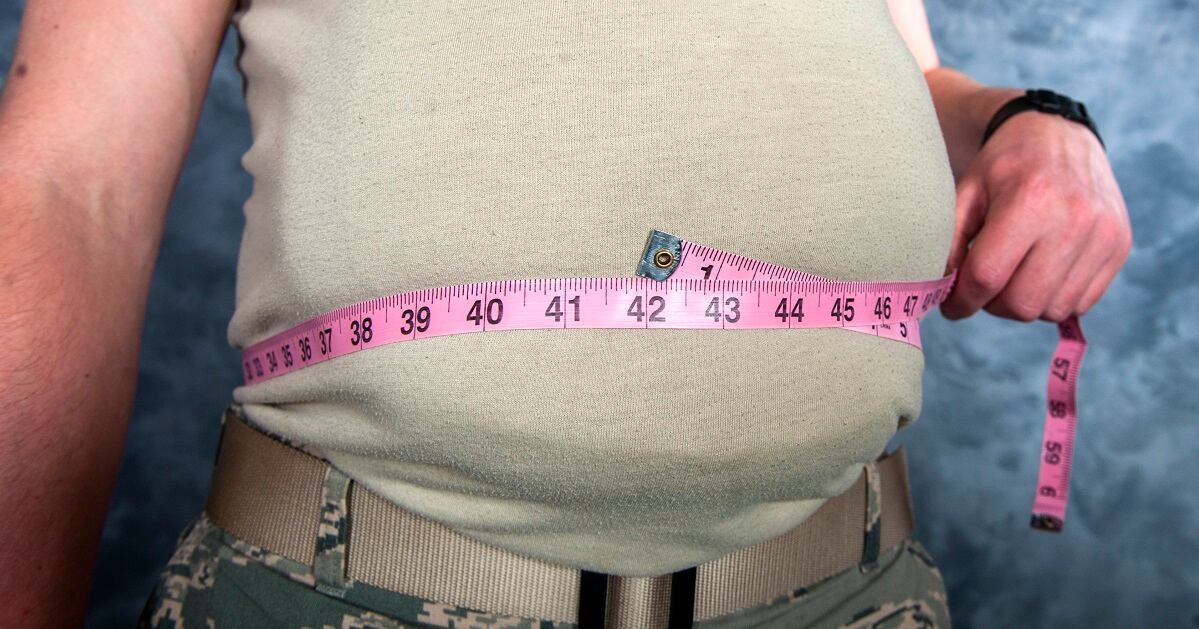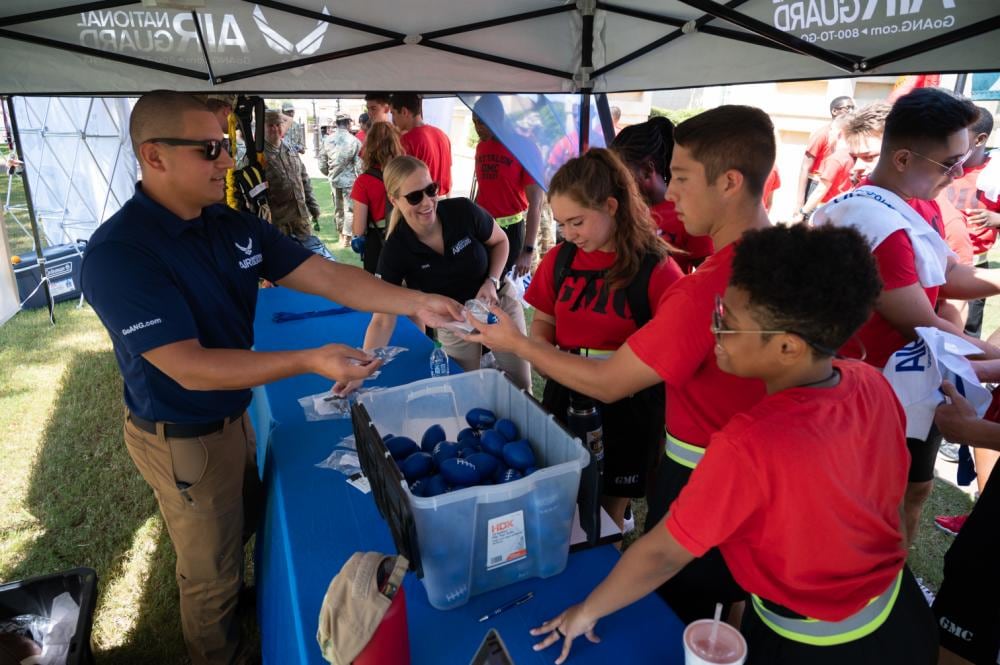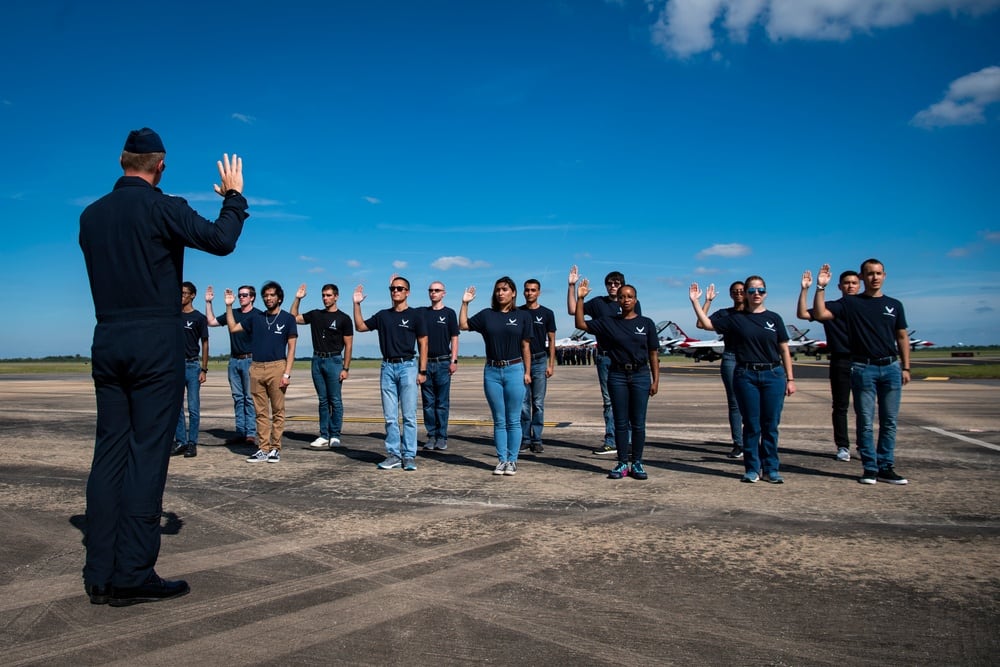Air Force recruiters have made gains in new enlistments over the past few months, but the service still projects it will fall thousands of airmen short in critical units next year.
To build on its recent gains, the Air Force’s recruiting branch is launching a concerted push through the summer to bring in as many new airmen as possible.
“We’re currently down 900 maintainers that will not show up for shift change tonight on the flight line,” Chief Master Sgt. W. Frank Rawls, the Recruiting Service’s operations superintendent, wrote in an organization-wide email on Wednesday. “Unless we stop the bleeding, 700 defenders, who are badly needed to keep watch over our missile fields and checkpoints, won’t be there come [Sept. 30].”
RELATED

That gap is expected to grow to 1,800 active duty maintainers by the end of the fiscal year, plus shortages of 300 airmen who handle munitions, 100 who fuel aircraft, and more, Air Force recruiting boss Maj. Gen. Ed Thomas wrote in his own email to rank-and-file recruiters on Tuesday.
“Airmen will almost certainly be asked to work longer hours, cover more shifts and make sacrifices in their personal lives to meet the mission demands essential to our national security,” he wrote. “The nation is depending on us.”
The emails first appeared on the unofficial “Air Force amn/nco/snco” Facebook page on Thursday. Recruiting spokesperson Leslie Brown confirmed their authenticity Friday.
Finding Americans who are interested in and qualified to enlist has grown increasingly challenging in recent years. As of the end of March, the midpoint of fiscal 2023, the Air Force was less than halfway to its goal — bringing in around 11,200 of the 26,877 active duty enlistees it wants.
RELATED

It expects to miss that target by around 4,100 people, personnel chief Lt. Gen. Caroline Miller told lawmakers March 29. The Air National Guard and Air Force Reserve are also on track to fall short of their staffing requirements by about 4,600 and 3,600 airmen, respectively.
The Pentagon is broadly struggling with recruitment because of a complex web of economic and health factors, dwindling interest in military service, and the introduction of a new electronic health records system that has significantly slowed the process of bringing in new people.
The Air Force’s smaller-than-usual bench of recruits was shrinking at the beginning of fiscal 2022, as people entered the service without more to follow. Recruiters have begun to reverse that trend so that the Delayed Entry Program, the service’s name for its backlog of incoming recruits, is growing.
Nearly 6,000 newcomers are currently waiting to ship out to boot camp, Brown said Friday.
RELATED

Rawls noted that more applicants had passed through Military Entrance Processing Stations during the week of March 27 than at any time since September 2019.
“The past three weeks have netted positive [Delayed Entry Program] gains, a streak our active duty component hasn’t seen since 2020,” he added. “These are much-needed wins and, together, winning will become habitual.”
Thomas indicated the Air National Guard and Air Force Reserve are also faring better than they were last fall. Air Force Reserve Command said Monday it would offer qualified airmen a $10,000 incentive bonus if they agree to join the Reserve for at least three years upon separating from active duty.
“We are slowly and decidedly building momentum through concerted effort, training in the field and advocacy for resources and policy changes at our highest levels of leadership,” Thomas wrote.
RELATED

In the final six months of the fiscal year, Thomas said he wants the recruiting enterprise to step up its “presence, pace and performance.”
“Your group and squadron leadership teams will be discussing with you specifically what this effort will entail to include duration, events, metrics and any schedule adjustments,” he said.
The two-star general encouraged his troops to be more visible in their communities through in-person and digital outreach, use their time wisely, and think of their job as more than just reaching a numerical goal.
“If it was easy, anyone could do it,” Thomas said.
Rachel Cohen is the editor of Air Force Times. She joined the publication as its senior reporter in March 2021. Her work has appeared in the Washington Post, the Frederick News-Post (Md.), Air and Space Forces Magazine, Inside Defense, Inside Health Policy and elsewhere.




